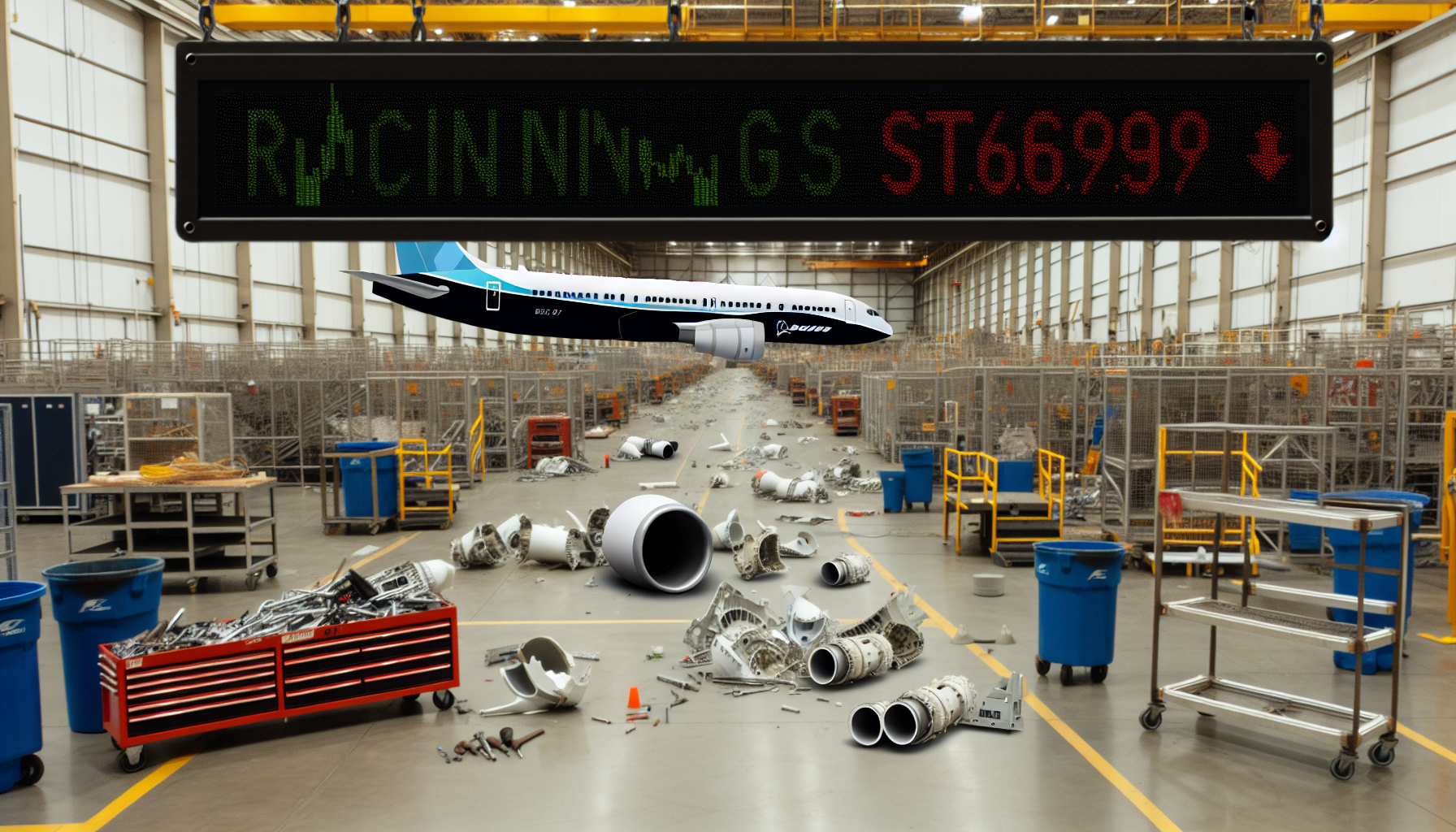
#BoeingStrike #LaborDispute #AerospaceIndustry
Boeing Faces Significant Challenges as 33,000 Machinists Go on Strike
A labor strike by 33,000 Boeing machinists, initiated early Friday morning, has brought production of the company's top-selling commercial aircraft to a halt. This move comes after union members overwhelmingly rejected a proposed contract that included a 25% wage increase over four years, despite union leadership's endorsement.
The strike, which affects Boeing's facilities near Seattle, particularly impacts the production of the 737 Max, 767, and 777 jetliners. These aircraft are crucial to Boeing's commercial and defense operations, including military derivatives such as the 737-based P-8 Poseidon and the 767-based KC-46 tanker.
Financial and Operational Implications
Boeing's Chief Financial Officer, Brian West, emphasized that the strike will jeopardize the company's recovery efforts. The company is now focused on conserving cash, a strategy that underscores the financial strain this labor action could impose.
The strike's impact on Boeing's defense programs is particularly concerning. The production of the KC-46 tanker, for instance, is likely to be delayed, which could affect the company's ability to deliver 15 tankers to the Air Force by the end of 2024.
Union Demands and Negotiations
The union members, represented by the International Association of Machinists and Aerospace Workers (IAM), sought a 40% wage increase and the reinstatement of Boeing's pension plan, which was cut in 2014. The proposed contract, while offering significant benefits, fell short of these demands, leading to widespread dissatisfaction among the rank and file.
Boeing's new CEO, Kelly Ortberg, has been actively engaging with union members to address their concerns and find a mutually acceptable agreement. However, the current standoff highlights the deep-seated issues between the company and its unionized workforce.
Market and Credit Implications
The strike's duration will be critical in determining its impact on Boeing's financial health. Fitch Ratings has warned that a prolonged strike could lead to a downgrade of Boeing's investment-grade credit rating, further complicating the company's financial outlook.
In the short term, Boeing's stock price is likely to be volatile as investors react to the news. The company's ability to navigate this crisis without significant long-term damage will be closely watched by analysts and investors alike.
Conclusion
The strike by Boeing's machinists is a significant challenge for the company, exacerbating existing issues with manufacturing and federal inquiries. As negotiations continue, the focus will be on finding a resolution that satisfies both the union and the company, ensuring the long-term viability of Boeing's operations.
Original Article: https://www.cnbc.com/2024/09/13/boeing-cfo-labor-strike-recovery-aircraft-production.html









Leave a Reply